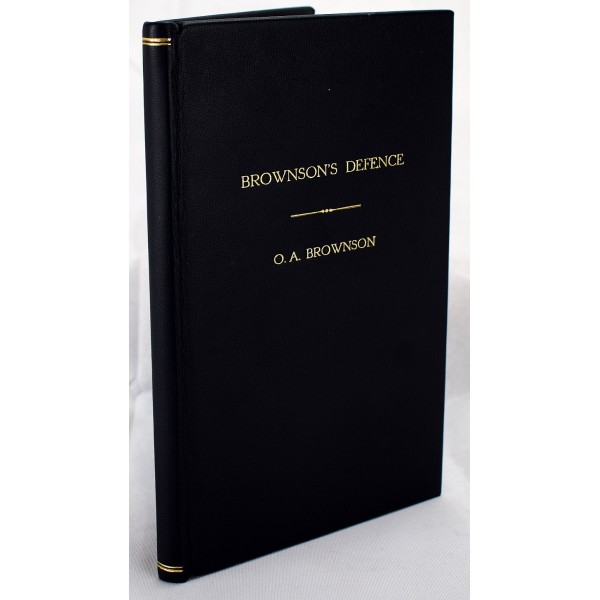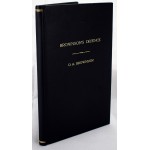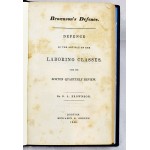Brownson's Defence: Defence of the Article on the Laboring Classes. From the Boston Quarterly Review [Fine Binding]
Brownson's Defence: Defence of the Article on the Laboring Classes. From the Boston Quarterly Review [Fine Binding]
Brownson, Orestes Augustus
Boston : B.H. Greene, 1840
[Christian Democracy; Early American Labor and Social Reform] Bound in fine black leather. Marbled end sheets. 94 pages. Scattered foxing throughout.
Orestes Brownson (1803 - 1876) was a transcendentalist thinker, social reformer, and pastor. Interestingly, he converted from Presbyterianism to Universalism and eventually to Catholicism. In 1836 he established the Society for Union and Progress, his personal attempt at a universal Christian church. Brownson held strong convictions in favor of egalitarianism and democracy and was influenced by the Saint-Simonists. Most of his congregates were working men and women and Brownson felt intense sympathy for their struggles in early American manufacturing system. Brownson rejected the inequitable class structure and contemporary abuses in American industrial capitalism. This led him down a path toward radical socialism and a rejection of some property rights. In July of 1840, he wrote a scathing article on "The Laboring Classes," which attacked the "oppressive" system of labor in the north. In this article, Brownson described the gradual destruction of the slave system and its replacement with a wage system, equally as oppressive. This attack on industrial capitalism and hereditary property led to an outcry against Brownson (Pres. Martin Van Buren is said to have attributed his loss in the close 1840 election against Harrison to the reaction to Brownson's comments. (See Van Buren's papers) While this is hyperbole, it indicates the significance of the article.) Brownson received strident responses and published this defense later that year to combat his critics. Sections include: Responsibility to Party, Opposition to Christianity, Opposition to the Priesthood, The Proletaries, The Descent of Property, His Conclusions. In his biography Arthur Schlesinger states that, Brownson's Laboring Classes was "the best study of the workings of society written by an American before the Civil War." See: Schlesinger, "Orestes A. Brownson: A Pilgrim's Progress." Sabin 8715.


